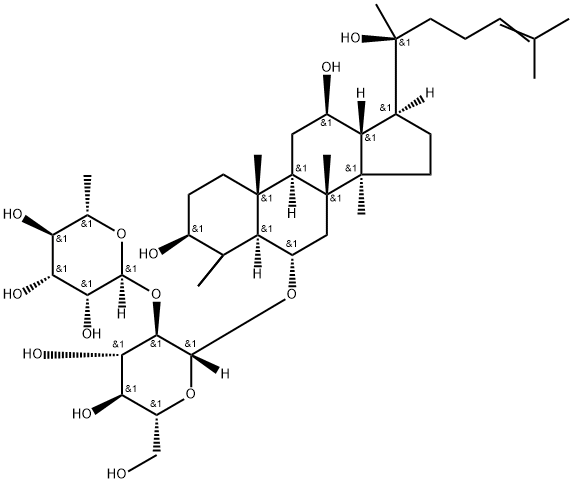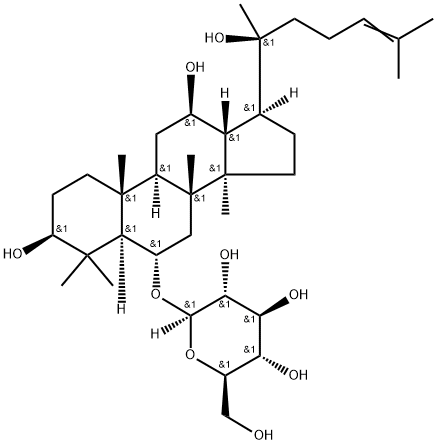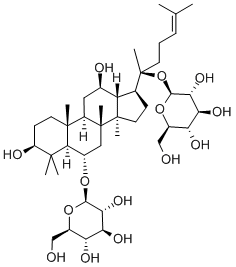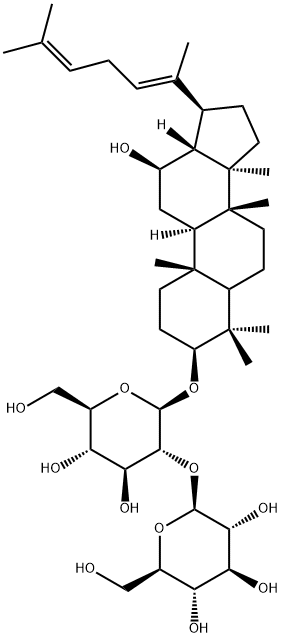Ginsenoside Rg2 , Analysis of standards,> 98% , 52286-74-5
Synonym(s):
(3β,6α,12β)-3,12,20-Trihydroxydammar-24-en-6-yl 2-O-(6-deoxy-α-L -mannopyranosyl)-β-D -glucopyranoside;Chikusetsusaponin I;Panaxoside Rg2;Prosapogenin C2
| Pack Size | Price | Stock | Quantity |
| 20MG | RMB288.80 | In Stock |
|
| others | Enquire |
PRODUCT Properties
| Melting point: | 187~189℃ |
| Boiling point: | 881.0±65.0 °C(Predicted) |
| Density | 1.30±0.1 g/cm3(Predicted) |
| storage temp. | 2-8°C |
| solubility | Methanol (Slightly, Heated, Sonicated), Pyridine (Slightly, Sonicated) |
| pka | 12.85±0.70(Predicted) |
| form | Solid |
| color | White to Off-White |
| Stability: | Hygroscopic |
| InChIKey | AGBCLJAHARWNLA-DJZXLMSJSA-N |
| LogP | 6.830 (est) |
Description and Uses
Ginsenosides are pharmacologically active natural compounds from ginseng and other plants of the genus Panax. Structurally, they are steroid glycosides derived from the triterpene squalene. Ginsenoside Rg2 is a protopanaxatriol that is more abundant in some Panax species (e.g., white and red P. ginseng) than others. This ginsenoside and its metabolites have diverse in vitro and in vivo effects, including neuroprotective, anti-
20(S)-Ginsenoside Rg2 is used as an aldose reductase inhibitor and my exert anti-inflammatory and immunomodulatory activity. It exists as a bioactive metabolite of the ginsenoside component of Panax ginseng.
Safety
| Symbol(GHS) |  GHS07 |
| Signal word | Warning |
| Hazard statements | H302 |
| Precautionary statements | P301+P312+P330 |
| Hazard Codes | Xn |
| Risk Statements | 22 |
| Safety Statements | 24/25 |
| WGK Germany | 3 |
| RTECS | LZ6430000 |
| HS Code | 29389090 |
| Toxicity | mouse,LD50,intraperitoneal,1340mg/kg (1340mg/kg),Arzneimittel-Forschung. Drug Research. Vol. 25, Pg. 343, 1975. |




